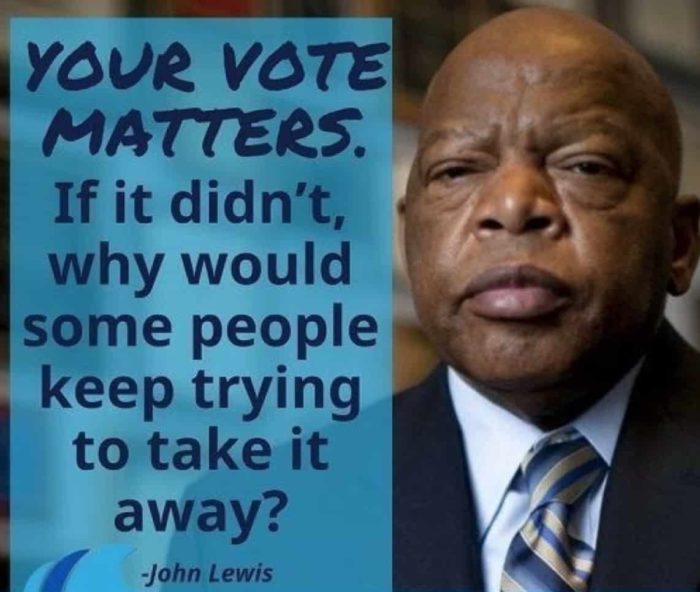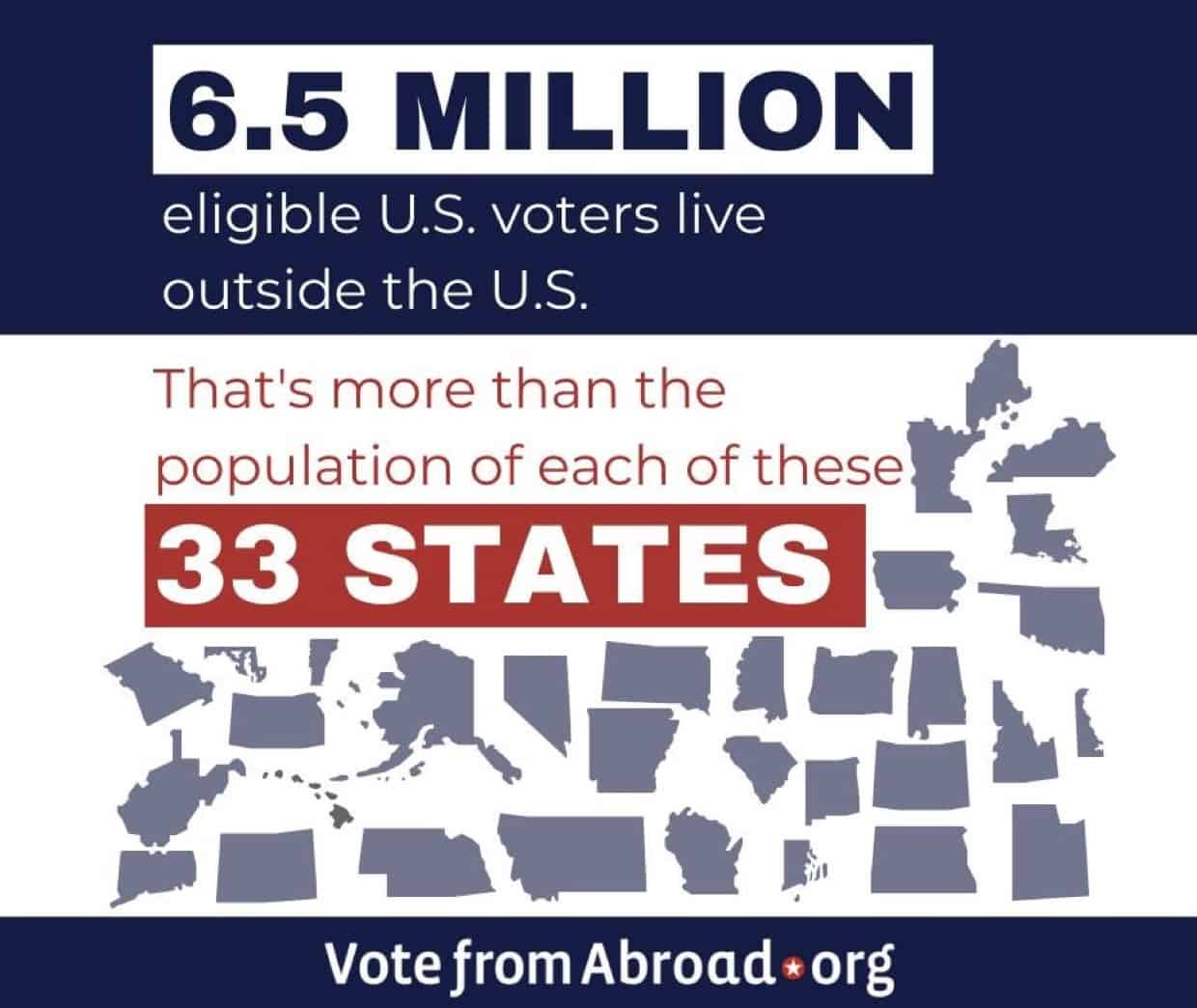Americans who are eligible to vote can do so from all over the world no matter how long they have lived abroad and even if they no longer have a residence in the United States.
Every state is required by the federal Military and Overseas Voters Empowerment Act (the “MOVE Act”) to provide blank absentee ballots to military and overseas voters in at least one electronic format — email, fax or online delivery system. Every state must do so at least 45 days before an election. This year, that date was September 19, 2020.
However, the MOVE Act does not specify how civilian ballots should be returned to the US— that decision is up to each state. Currently, 30 states allow UOCAVA voters to submit their completed ballots electronically (email, fax, or electronic upload); 20 states still require hard copy ballot returns.
So how can overseas voters register, receive their ballots, and send them back in time to count in the November 2020 election? Here’s some helpful information:
- Register as a UOCAVA. Voters should make sure they are properly registered as a UOCAVA voter at their U.S. local elections office. You can do this online at votefromabroad.org. Here you can fill in, sign, and return your ballot registration or request form, known as the Federal Postcard Application (FPCA). We strongly urge voters to request to receive their ballot by email so that it will arrive without delay.
- Keep in mind that you need to request your ballot every calendar year you would like to vote in. By requesting your ballot, you federally protect your vote and ensure it will be counted in case of a tight election.
- Check the deadlines, ballot transmission and certain identification requirements for your state. votefromabroad.org provides state specific information when filling out the form. You can also look up state requirements at votefromabroad.org/states. If you have any further questions you can email help@votefromabroad.org.
- If you do not receive confirmation of receipt of your ballot request from your local election office within a week, call them to confirm the status of your request.
- If you are required to return your ballot in a hard-copy form, even though international mail service has been restored, it is still relatively slow and time is growing short. Here are some other options:
- Private courier service. Every hard-copy ballot return state has confirmed that it accepts ballots from abroad via private courier. This is an expensive but speedy solution.
- Diplomatic pouch. In Costa Rica, voters may deliver their sealed ballots to the U.S. embassy. Before drop off, voters need to seal their ballot in a postage paid return envelope or have added sufficient US postage to their ballot’s envelope for delivery to their election office from within the US. US postage-paid templates are available to download Expect a two-week delay from the time you drop off your ballot at the embassy to the time it is delivered at your local election office.
- Time is growing short, so if you don’t think your ballot will reach its destination in time to be counted, vote with a FWAB. Recognizing the need for overseas voters to be able to return their ballots in a timely manner, the federal government allows UOCAVA voters to use the Federal Write In Absentee Ballot, or FWAB, in cases where it will not be possible to send in a regular ballot prior to election deadlines. This option is only available to UOCAVA voters (so register and request your ballot first if you haven’t already!) and are available now. To access an FWAB, go to votefromabroad.org/fwab for more information and state-specific details.
- Vote as soon as possible. Voters can and should mail in their ballots to the USPS as needed or required, and efforts are being taken at every level to ensure that they are processed expeditiously.
- Voting abroad, especially during the pandemic, is complicated. For this reason, only 7% of US citizens living overseas even bother to vote. It is not uncommon for state and local election officials to be unaware of the federal requirements for overseas voters. If your local election office is not familiar with some of the legal points mentioned above, please email voterprotection@democratsabroad.org to report the situation. A voting expert will follow up with your local election office to try to resolve the issue.
 Any US citizen eligible to vote can do so no matter where they live in the world. By following the above steps, US citizens living in Costa Rica can make sure their ballots are sent back in time to be counted. If you need more information, specifically about voting from Costa Rica, please email us at democratsabroadcostarica@gmail.com.
Any US citizen eligible to vote can do so no matter where they live in the world. By following the above steps, US citizens living in Costa Rica can make sure their ballots are sent back in time to be counted. If you need more information, specifically about voting from Costa Rica, please email us at democratsabroadcostarica@gmail.com.
Democrats Abroad is the official organization of the Democratic Party for United States citizens living permanently or temporarily abroad.
Votefromabroad.org is a public service provided to those U.S. citizens who wish to vote, regardless of their political affiliation or lack thereof.
This article was paid for and produced by Democrats Abroad.






